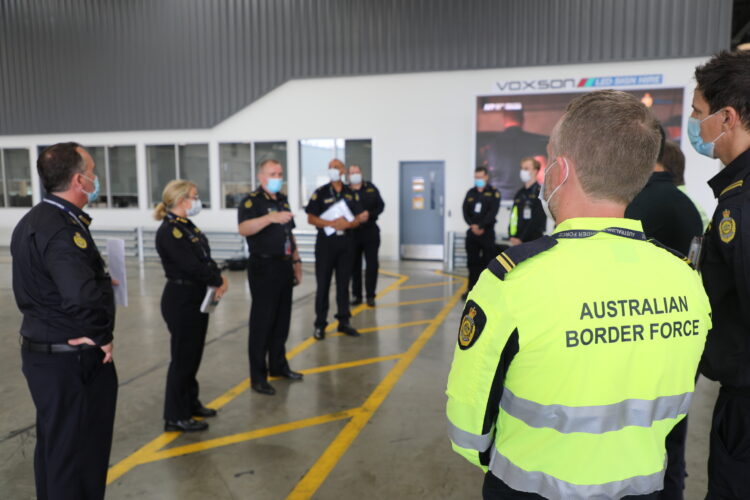By Martin Cole-
Corrupt Australian Border Force officials abused their power in searching and seizing mobile phones of passengers, it has been revealed.
They searched 822 travellers’ mobile phones in 2021, despite their admission to have no legal power to force arrivals to give them the passcode to their devices.
The disgraceful revelations emerged during responses to questions on notice from Labor’s shadow home affairs minister, Kristina Keneally, border force confirmed that when international travel was still limited during the Covid pandemic – officers searched 822 devices at the border, out of more than a million arriving or departing travellers.
In a written response to questions by Nick Mckim- the Greens digital rights spokesperson- border force has confirmed there is no legal obligation for people to hand over their passcodes.
“There is no legal compulsion for a traveller to provide a password/passcode or provide assistance to an electronic device at the border,” border force said.
However, in the event a person refuses to comply with the request and a border force officer considers there to be “a risk to the border” then border force can seize the device for further examination. There is no limit on time for how long the devices can be held for, but the agency said the policy is to keep devices for no longer than 14 days, unless it will take longer to examine the device.
Border force said a phone would only be seized where officers suspect it has “special forfeited goods” such as “illegal pornography, terrorism-related material and media that has been, or would be, refused classification”. The problem with the system used by boarder force is that suspicion isn’t evidence.
McKim said border force officials should be required to get a warrant before going through people’s phones. That requirement was bypassed on multiple occasions, calling for the urgent need to ensure its application in future.
“It’s generally the requirement in Australia and it should be no different at the border,” he said.
“Australia’s privacy protections need considerable strengthening so people’s phones aren’t examined on a hunch, or confiscated under the shadow of being referred to other authorities.”
McKim said there needs to be more transparency from border force about what data had been collected from the searches, who has access to it and how it is stored.
Border force said devices were scanned by another device, rather than manually checked by officers.
“Only trained ABF officers will undertake examinations of electronic devices,” border force said. “The examination process involves the connection of the device to examination equipment and the review of the data stored on the device to determine a subsequent course of action.”
Travelers cannot be present during the examination “for operational and security reasons”.
Border force said officers also have the power to make copies of documents related to any offence against a prescribed act, or information relevant to the work of Australia’s spy agencies.
Australian Prime Minister Image:EPA
“Any copied information is stored securely and is subject to current ABF established security guidelines,” it said. “The ABF does not alter or delete any data as a result of an examination of a device under the Customs or Migration acts.”
The data can be shared “depending on the type of information and the specific legislation that applies to that type of information”.
With the federal election expected to be called imminently, Australian prime minister, Scott Morrison needs to get his house in order.
He bowed to pressure and agreed to another $385 million in flood funding for Queensland, after being lobbied by some of his own MPs fearful of the electoral consequences.
A day after defiantly rejecting demands from the Queensland and NSW governments for more funding on top of the $2.1 billion in Commonwealth money already committee.




